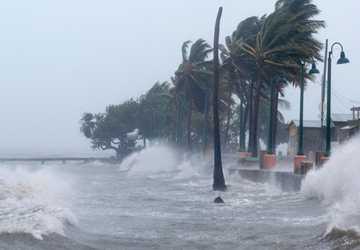Investors, authorities, and businesses are setting new benchmarks to reduce the financial impact of climate change.
Over $630 billion as a Megatrend in investment in global GDP was lost between 2016 and 2018 due to weather disasters exacerbated by climate change.

As a result of the climate crisis, green investing has emerged as a significant movement. The frequency and severity of natural disasters like wildfires, heat waves, and big storms rise. As international economic and regulatory activity picks up steam, investors are beginning to recognize the consequences of climate change.
Weather events driven by climate change were responsible for over $630 billion worth of economic damage globally between 2016 and 2018.
It's a major reason why people in the financial sector and business and government regulators are beginning to recognize the importance of considering climate change in investment research and public reporting.
Because of breakthroughs in attribution research, we now know that climate change affects both the frequency and intensity of extreme weather episodes. As a result, the threat posed by climate change is much larger than any single storm or wildfire. Therefore, investors must cultivate a comprehensive understanding to assist them in making judgments regarding their investments.
Climate change is widely recognized as a potential systemic danger to global financial markets.

The Economic Threat of Climate Change
Sustainable investment is becoming more popular, and financial authorities recognize climate change as a major threat. Climate change threatens a strong economy by upsetting sectors such as education, healthcare, and financial transactions. Climate change was singled out as a distinct structural risk to the financial system by the (NGFS) in its first report, which also underlined that asset prices do not entirely capture climate-related risks.
Businesses are making efforts to disclose more crucial data about climate change risks in response to rising scrutiny from investors and authorities. Companies reporting climate change have been refined because of efforts like the TCFD, which has helped investors make more informed choices.
Given the growing urgency over climate change, the Task Force on Climate-Related Financial Disclosures (TCFD) was developed to respond to the need for better decision-making based on more accurate information. TCFD has created tools and services that raise the standard of commercial climate disclosure by joining forces with players in the commercial and financial communities.
Because of advances in both the accessibility and the level of detail of climate data, there is now a greater breadth and depth of choice available for incorporating climate change into investing plans. Various methods, including restricted screening, integrating environmental, social, and governance considerations, theme and impact investing, and investor involvement, give investors a choice of avenues to pursue to achieve their monetary and impact objectives.
Changing weather patterns will have far-reaching effects on the investment sector. As a result, taking climate change into account when making financial decisions will soon become as routine as looking at a company's accounting records, even if the concept is still novel to some.


